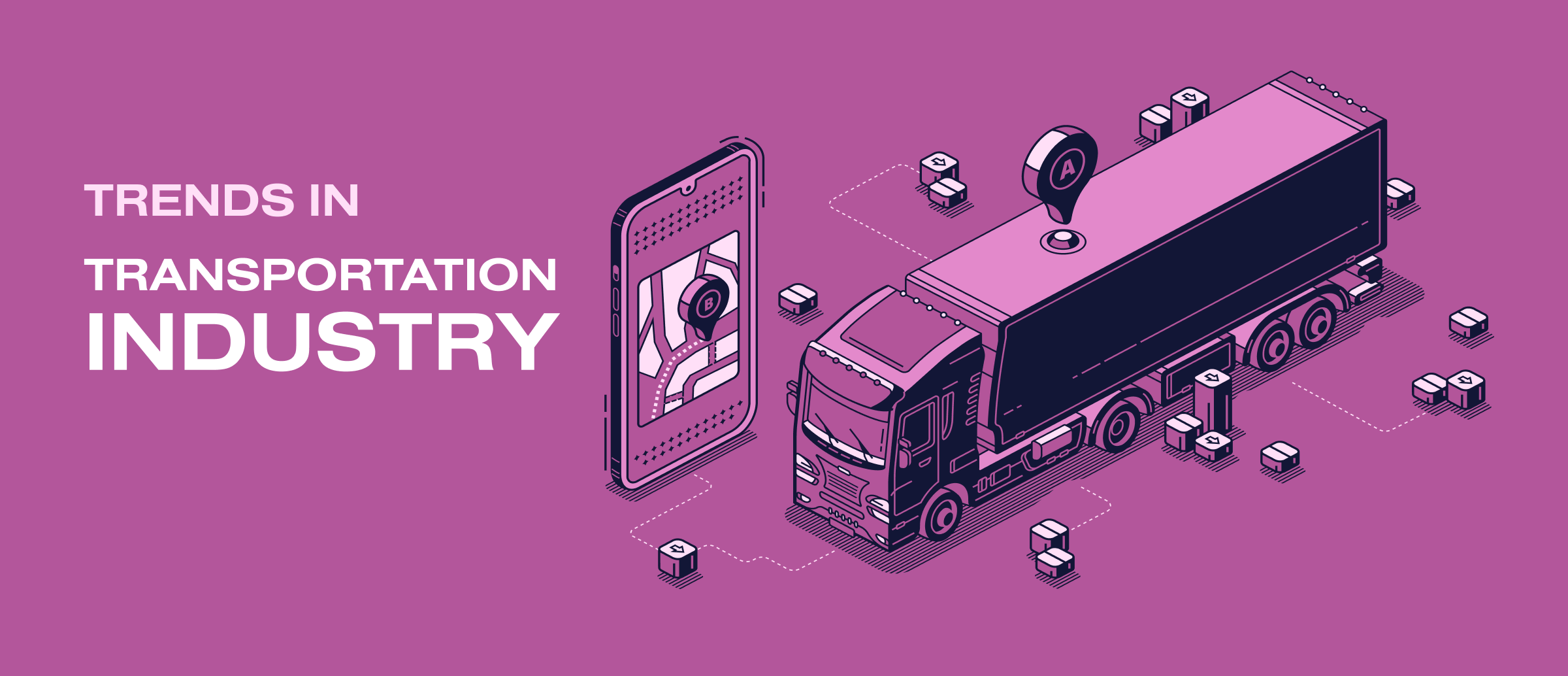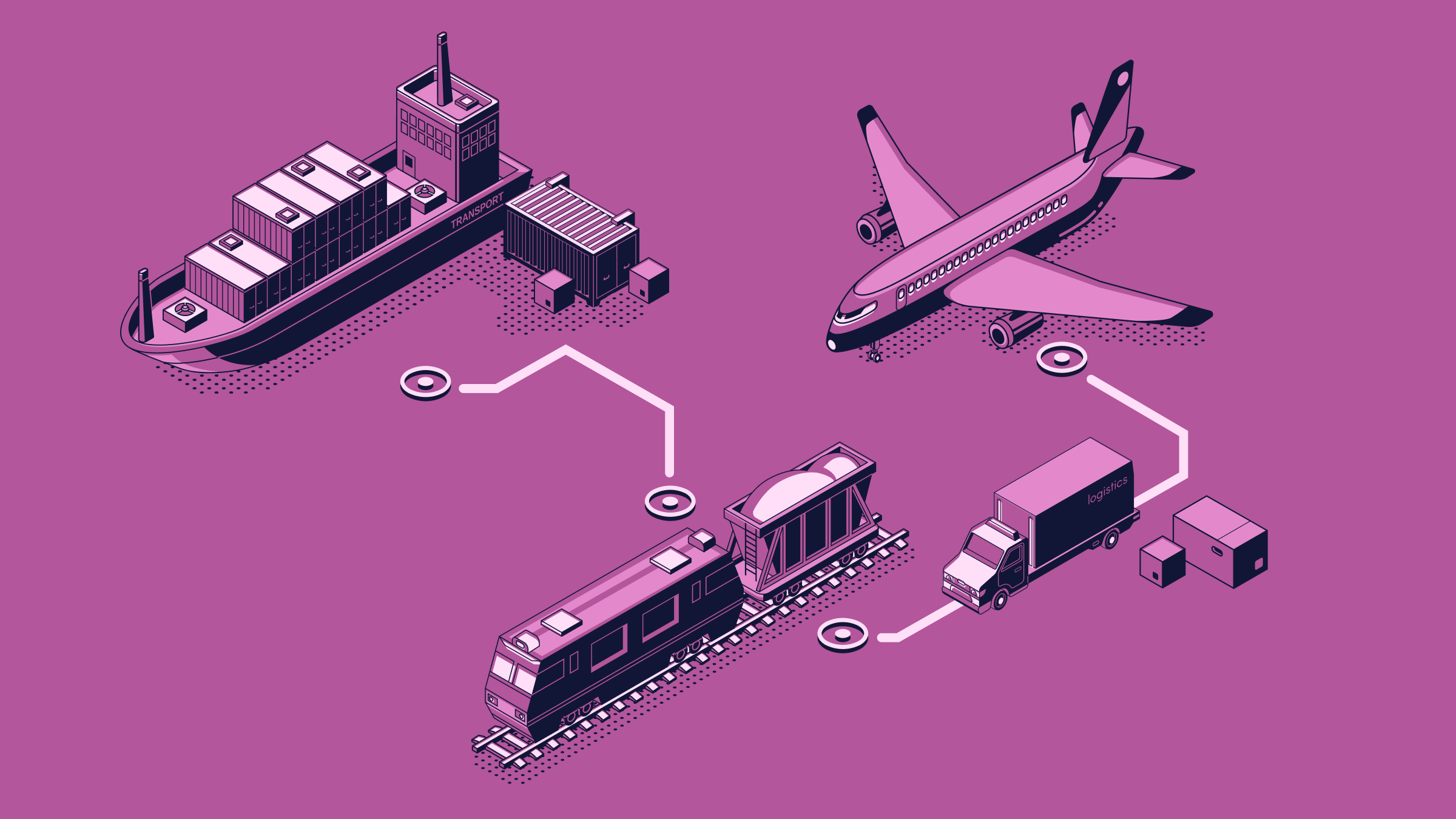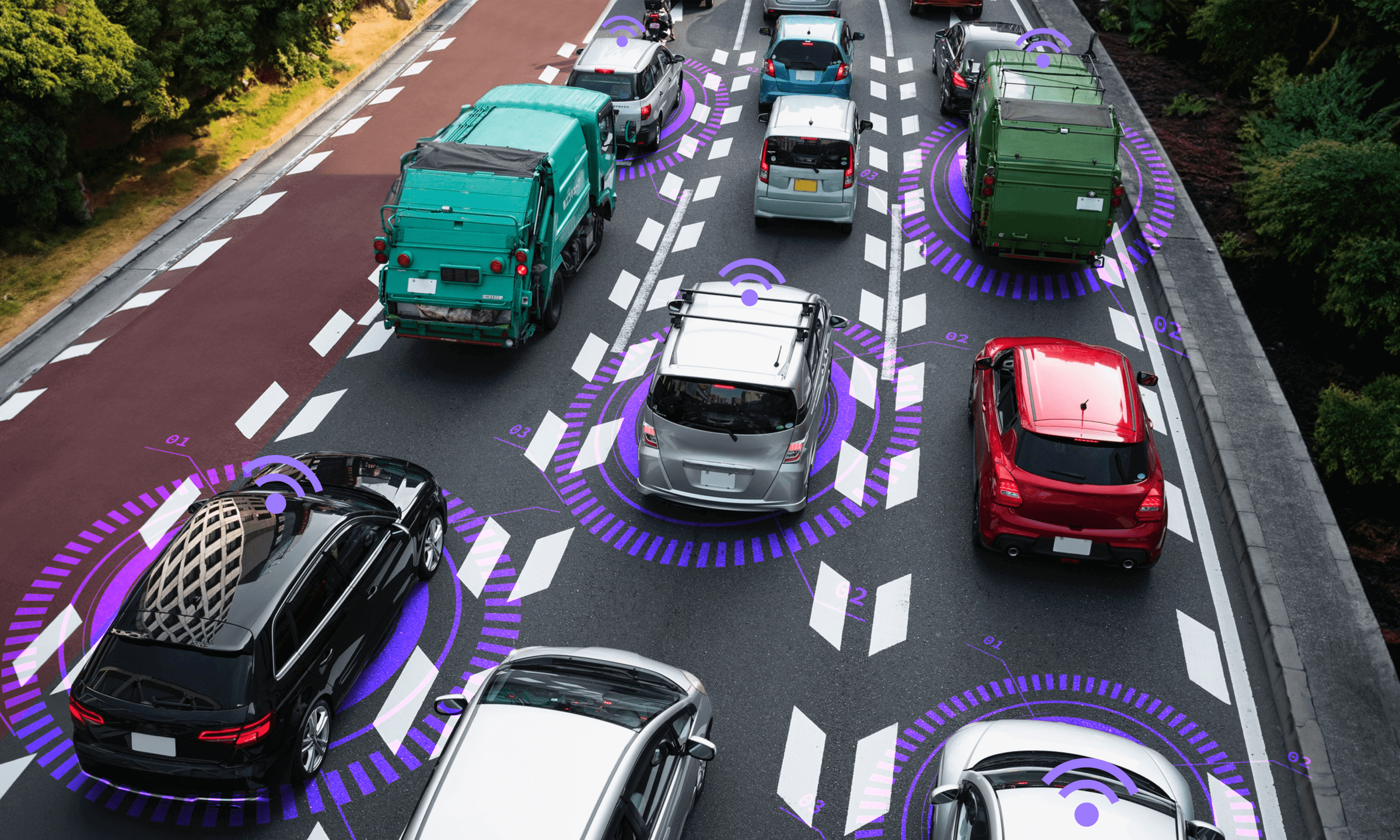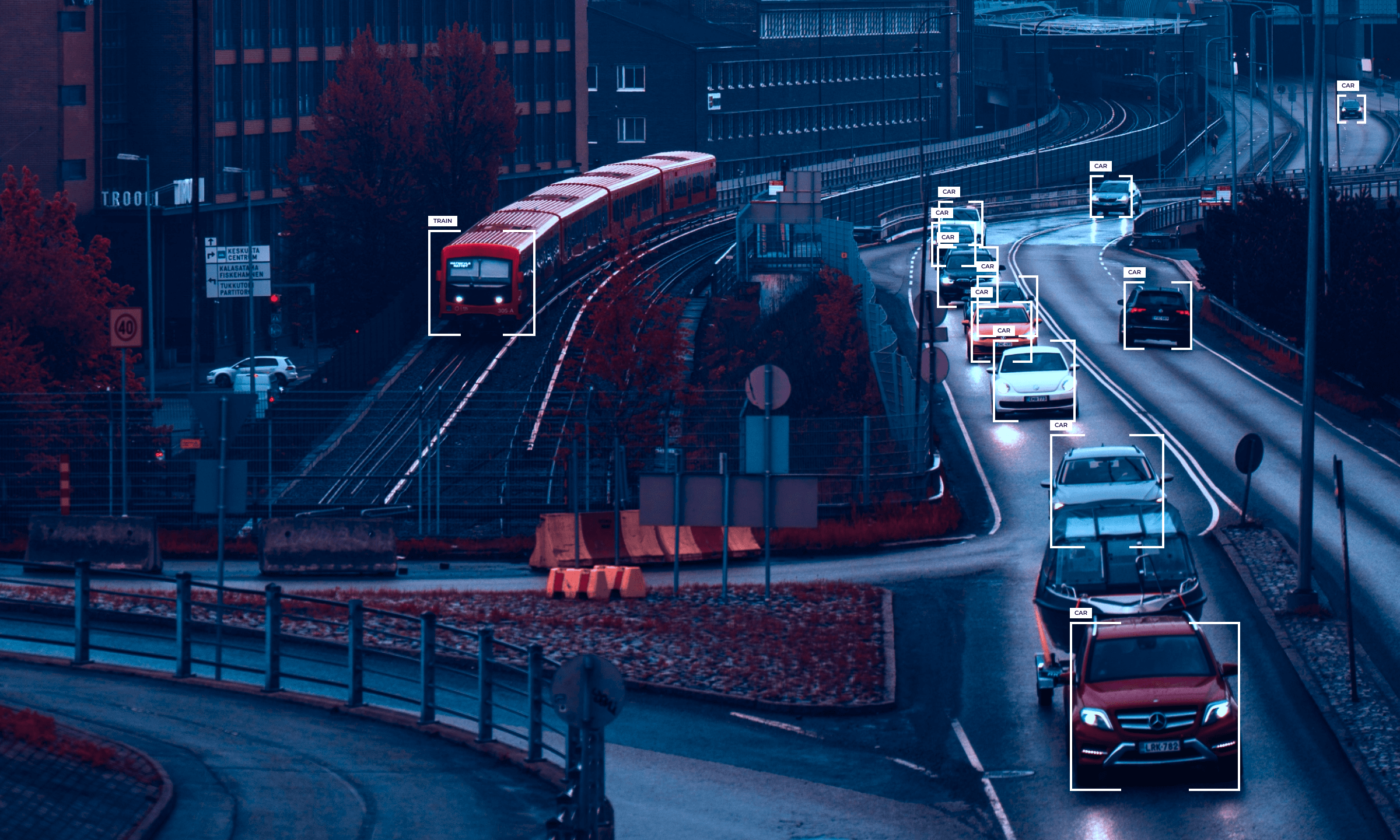AI has been actively implemented in different business areas since 2016. In 2018, McKinsey analyzed several hundred AI use cases and found that the most advanced deep learning techniques deploying artificial neural networks could account for as much as $3.5 trillion to $5.8 trillion in annual value or 40% of the value created by all analytics techniques. Each year, these numbers only grow. Those who are still waiting to implement AI will lose in the long term, especially in the transportation industry.
This article discusses how AI can impact transportation companies, IoT’s role in implementing AI, and the best use cases of artificial intelligence in the transportation industry.
Key points
- Global trends in the transportation industry
- How can AI impact transportation companies?
- Best use cases of artificial intelligence in the transportation industry
- Big Data ML/AI in the transportation industry
- IoT’s role in implementing AI in the transportation industry
- What are the challenges of implementing AI in transportation?
- Conclusions
Global trends in the transportation industry

According to McKinsey, the level of investment in AI has increased alongside its rising adoption. We highlight the following trends in the transportation industry:
- Using artificial intelligence and machine learning for inventory and warehouse management. This optimizes storage and inventory management costs and reduces the likelihood of errors.
- Development of demand forecasting systems. Using artificial intelligence to analyze data on purchases and consumer behavior allows for improving demand forecasting and reducing inventory costs.
- Delivery route optimization. The use of artificial intelligence algorithms can optimize delivery routes and improve the efficiency of the delivery process.
- Development of robotization in logistics. Robots can perform routine tasks in warehouses and order processing centers, thus reducing personnel costs and increasing productivity.
- Development of software systems for logistics management. Artificial intelligence makes it possible to create logistics management software systems that effectively coordinate logistics and delivery processes.
The potential of AI in transportation is enormous and astounding. Artificial intelligence allows transportation companies to analyze huge amounts of data in seconds and build predictive models. It is a super-efficient tool for selling services, including freight transportation. For example, it can tell when, on what day, and at what price to sell a wagon or truck.
Delta Air Lines already uses AI to predict aircraft flight delays and automatically rebook to alternate flights. This platform can also analyze vast amounts of operational data (aircraft position, crew restrictions, and airport conditions) to create hypothetical results. This helps the company make important decisions before, during, and after major disruptions such as hurricanes or volcanic eruptions.
How can AI impact transportation companies?

The use of artificial intelligence by various businesses is an urgent but ambiguous issue.
On the one hand, we see AI use cases in e-commerce – in the communication between the seller and the target audience and the customization of the user experience. For example, through a mobile app and artificial intelligence technologies, a customer can try on shoes and clothes by entering body parameters. Or he or she can integrate items for the home into the interior design.
On the other hand, for example, in warehouse logistics, it is correct to talk about process automation rather than using AI in operational tasks. The activities of fulfillment operators are built according to strict algorithms, most of which are automated. However, some operations require employees’ core competencies and involvement here and now. Such a stage, for example, is a receipt, where an employee sometimes has to compare each item with the database and check it for authenticity and defects. Therefore, it is not worth discussing the full replacement of human resources with artificial intelligence is not worth discussing.
Best use cases of artificial intelligence in the transportation industry
It is crucial to separate really working technology from hype. Self-driving vehicles are still something out of the realm of science fiction. However, there are technologies that you should definitely pay attention to right now. In our opinion, it is everything that is built around the collection of data and its intelligent use. All of this should be the sphere of interest, including the participants in the transportation industry.
AI technology reduces costs. It at least automates processes. And, at most, it solves routine business problems.
For example, it can solve the problem of empty mileage. It is acute in the automotive industry, as well as in aviation and the railway. The problem is complex and related to incorrect supply and demand forecasting. Transparency of transport location is also a problem.
Demand forecasting and inventory management
AI can predict product demand based on a given region and other parameters such as weather conditions, events, etc. Algorithms are also used to optimize inventory management in warehouses.
Smart roads
Combining AI with sensors, RFID tags, satellite monitoring systems, and 5G networks can give a powerful boost to smart roads.
Smart roads are a component of the smart city concept, which uses advanced information technology (Internet of Things, cloud computing, Big Data, artificial intelligence) to facilitate planning, construction, management, and maintenance. Smart road technology will improve road safety and reduce delays in the supply chain caused by adverse weather conditions and road incidents.
In 2022, Melbourne launched a smart road. A software suite with a universal deep learning platform, an urban mobility management system, and a collaborative data processing platform for advanced analytics manages all traffic.
Delivery route management and delivery chain optimization
AI helps optimize the distance and trajectory of delivery paths and better coordinate delivery times, reducing them along with fuel costs.
U.S. logistics company Coyote Logistics uses predictive analytics, artificial intelligence, and machine learning to correlate information about the delivery process with external data (real-time traffic and weather). The resulting data allows the company to predict transportation chain problems while developing an alternative delivery plan.
Better customer service
Planning and flexibility in transportation mean better service and lower costs. AI can help automate routine tasks such as writing emails and creating content. AI-powered tools are used to analyze customer behavior, providing more accurate sales and marketing analytics.
Automating warehouses and fulfillment centers
Using AI to automate warehouses and fulfillment centers can improve efficiency and reduce processing time. For this purpose, you need:
- Data from sensors installed on vehicles, warehouses, and other logistics infrastructure
- RFID tags and other technologies to track the location of shipments and monitor their movement
- Data from the Internet of Things (IoT) to monitor equipment and processes at a distance
- External information, including weather, traffic congestion, and other factors that affect delivery times and supply chain operations
- Logistics process management software that integrates all of the collected data and automates many processes
Alibaba has the world’s largest automated warehouse, with robots picking and packing goods for delivery to customers. The robots can hold up to 500 kg while they move. Each machine has special sensors to prevent collisions with each other, and there is Wi-Fi for employees to call. Currently, robots in the company’s warehouse do 70% of the work.
Big Data ML/AI in the transportation industry
Big Data ML/AI is a technology stack for processing and analyzing patterns using algorithms. ML algorithms are used to manage pricing, predict traffic, determine optimal routes and schedules, analyze passenger flow data, and monitor safety.
Machine learning algorithms can be used to analyze large amounts of traffic data to predict traffic and demand as well as optimize routes. This can help reduce delays and improve the transportation system’s efficiency.
Machine learning can be used for safety monitoring. For example, algorithms can analyze speed data, technical conditions, and driver behavior to identify dangerous situations, prevent accidents, and predict maintenance.
But implementing Big Data ML/AI in the transportation industry is impossible without cloud computing. Without this system, building a modern digital ecosystem in transportation is impossible. This is the foundation for all subsequent digital transformation, where various technologies, such as artificial intelligence and machine learning, will be built. Transportation companies must consider moving their entire infrastructure to the cloud and implementing AI.
IoT’s role in implementing AI in the transportation industry

The introduction of the Internet of Things (IoT) is a key component. It is, first and foremost, a data source that can be used to reshape an entire business. IoT is a set of sensors that transmit real-time data and information to the cloud, allowing algorithms and AI to analyze and make predictions, providing tremendous benefits.
For example, truck platooning. AI-based systems can improve route planning and speed control, reduce traffic congestion, reduce fuel consumption by reducing aerodynamic drag, and improve road safety.
In the case of railways, IoT will allow for more efficient planning of maintenance cycles, as well as optimized maintenance schedules. Artificial intelligence can minimize the number of breakdowns and failures.
What are the challenges of implementing AI in transportation?

Difficulties can be associated with lacking qualified specialists and data for AI model training. In addition, there is not always an understanding of how to use AI technology to solve business problems at the company level. Lack of funding, time, and team synchronization also hinder the process.
Let’s discuss AI implementation challenges in more detail:
- Lack of data. One of the key challenges of implementing technology in transportation is the lack of access to the full amount of data needed to train AI algorithms. In such cases, the accuracy of systems can be severely limited.
- The difficulty of adapting to individual needs. Each transportation company has its specifics and requires a unique approach to implementing AI solutions.
- The need for highly qualified personnel. Implementing AI in logistics requires extensive knowledge of artificial intelligence and its application to industries. Transportation companies must turn to experienced development teams like SoloWay Tech for the most accurate AI-based system.
- Difficulty implementing new technologies. Just introducing new AI technology does not guarantee that it will become effective. It is essential to create integration between systems, train personnel to handle the new technology and organize the information flow in a quality way.
- Risk of the data breach. Implementing AI can significantly threaten the security of data and personal information. This is due to both the risk of data theft and the danger of mistakenly processed information.
- The high cost of implementing AI solutions. Implementing AI in transportation requires a substantial investment. At the same time, maintaining and further developing AI systems may be even more resource-intensive. Choosing the right solutions requires a careful analysis of the strengths of this technology combined with a multi-factor assessment of the expected assistance of this technology and the inevitable costs.
Soloway Tech is an exceptional choice as a reliable partner for implementing AI solutions in the transportation industry. We are a leading company in the field, consistently delivering innovative and effective AI solutions. Our advantages:
- Expertise in AI
- Transportation industry experience
- Data-driven approach
- Excellent reputation
- Scalability and future-readiness
Our team combines expertise, industry experience, comprehensive solutions, and a data-driven approach, making us a reliable partner for implementing AI solutions in the transportation industry. Our dedication to excellence and commitment to driving transformative results position us as a trusted collaborator in leveraging AI for transportation optimization and innovation.
Conclusions
Artificial intelligence in transportation is promising since this technology can solve several problems associated with optimizing processes and improving supply chain management efficiency.
However, for the successful implementation of AI in transportation, it is necessary to solve some problems and overcome some obstacles: create conditions for collecting and processing large amounts of data, train personnel to handle new technologies, guarantee data security, etc.




